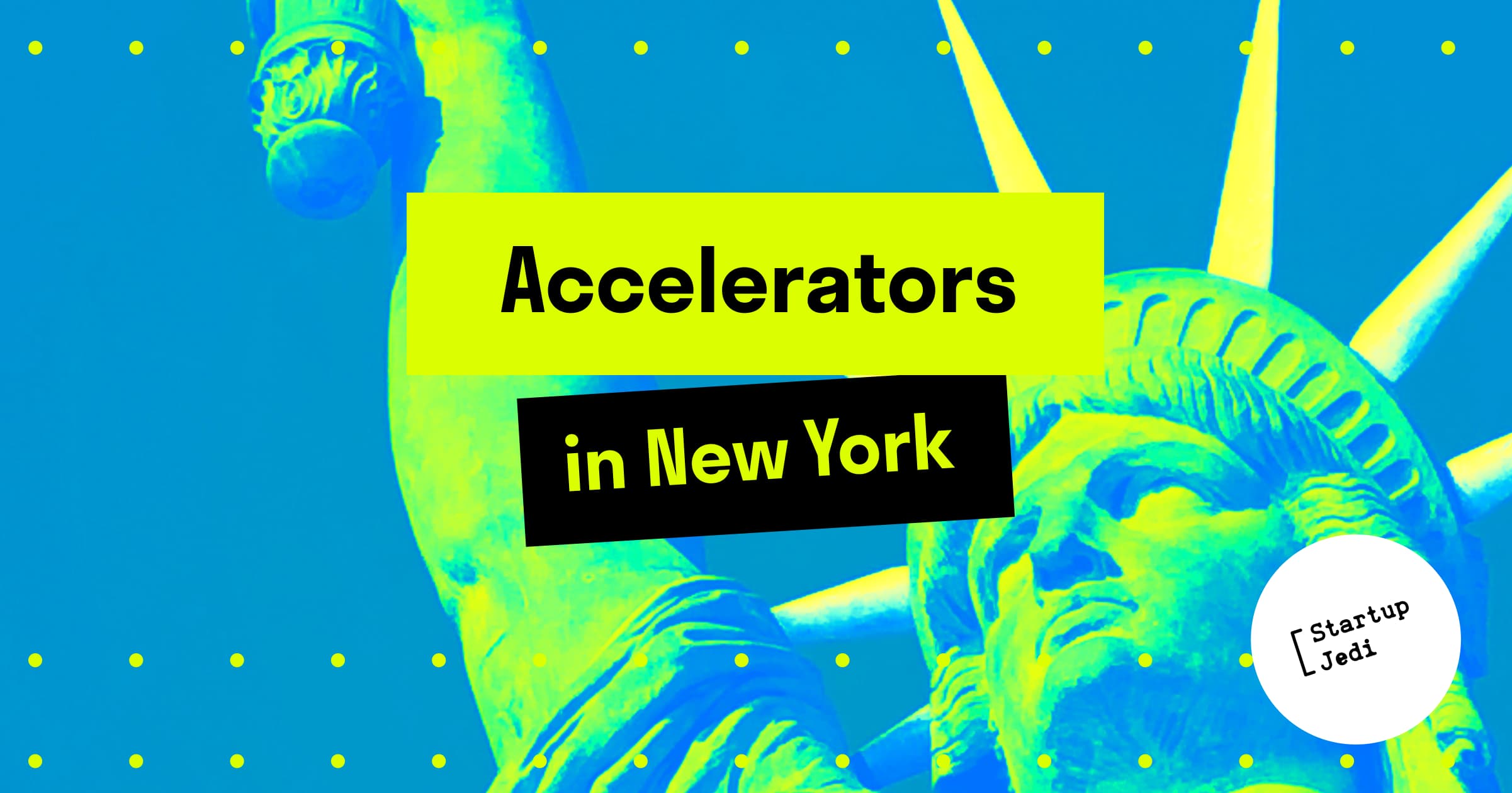
Startup Jedi
We talk to startups and investors, you get the value.
In our previous article, we reviewed an ecosystem of accelerators in Silicon Valley. Today, we’re about to move to the opposite side of the USA and have a look at how the things go in New York, which is traditionally considered as a centre of entrepreneurship on the Atlantic coast.

Startup Jedi
We talk to startups and investors, you get the value.
This is the very place where Wall Street is located — one of the largest financial centres. There, all the largest stock markets are gathered: The New York Stock Exchange (NYSE) and NASDAQ near the Liberty Plaza. As the saying goes, it is an ill startup that doesn’t strive to IPO on the largest stock markets.
...
As for today, Crunchbase totals 104 companies under the “Accelerators in New York” category. With this, 46 of them have at least one investment in their portfolio, while Startup Health heads the list of closed deals. In their portfolio, they have almost 300 closed deals with partners from 25 countries and 18 successful exits, which, frankly speaking, doesn’t fascinate, but we will talk about the exits record-holder in a few sentences. The accelerator was founded in 2011 and as you might have guessed from the name, they mainly focus on startups in the healthcare industry, which are a bit mixed with biotechnologies and genetic projects. The accelerator declares 11 major objectives in the medical industry, which they want to solve with their investments:
Access to healthcare,
The cost equals to zero,
Disease recovery,
End of cancer,
Female health,
Child health,
Fitness and nutrition,
Mind health,
Mental health and happiness,
Longevity,
Addictions.
There are no celebrities among accelerators’ exits, but the most successful project, which has gone through the accelerator, is Maxwell Health. It was sold to Sun Life Financial in 2018.
Dreamit Ventures is in second place by the number of closed deals. They have 277 deals and 27 exits. The program lasts for 14 weeks but it differs as there is no Demo-day, which many startups have in their practices. This accelerator has a more vague focus on the industries: from healthcare to real estate and from cybersecurity to physical security. There are no well-known names among successful exits too, but the most successful is Tissue Analytics, which allows a safe transmission of patient wounds’ photos to doctor’s desktop; it was bought by Net Health in May 2020.
The third place is taken by Entrepreneurs Roundtable Accelerator (ERA), which was founded in 2011. The accelerator has 17 successful exits and 228 investments under its belt. The acceleration program lasts 16 weeks and hosts events offline (at least, it was offline before the COVID-19 pandemic happened). This accelerator focuses on software development and e-commerce. Among successful exits, we should mention Dashride, which was bought by Cruise in 2019. The service allows automatizing dispatching parts of taxis, limousines and ridesharing.
Finally, we made it to our leader by the number of successful exits, they have 30 exits and 209 concluded deals. This record-holder is TechStars New York (we have a separate article about TechStars), it was founded in 2011. They focus their 13-week program on fintech startups and software developers. There are no celebrities among those 30 successful exits but we want to mention Plated and CrowdTwist. The first one delivers the receipt and all the ingredients of the gourmet dish in 30 minutes; it was bought by Albertsons in 2017. The second one — CrowdTwist. It builds solutions for multichannel loyalty and analytic decisions; it was also bought by Oracle in 2019 (the deal value is confidential).
Quake Capital closes our top five accelerators with 113 deals, but it has only two exit points. The company was founded less than 5 years ago, in 2016, by Glenn Argenbright and partners. The accelerator runs its program offline with a Demo-day at the end. At the same time, the company focuses on startups, which deal with software development, healthcare and e-commerce. One of the two successful companies in Quake Capital’s portfolio is Love Goodly (a subscription service for the delivery of non-toxic and cruelty-free cosmetics), which was acquired by Novica United in May 2020. The second successful accelerator exit is Pippa, a podcast service that Acast acquired in 2019. In both cases, the amounts of the deals were not disclosed.
...

New York is considered a financial capital of the USA and one of the financial capitals of the world, with this, in the top-five accelerators by the number of concluded deals, there are no accelerators, which would actively develop fintech startups (TechStars is rather an exception, as there are predominantly fintech projects). With this, the greater attention is paid to companies in healthcare, e-commerce and nutrition (Food-X, which did not enter the top five, it specializes in food tech startups, and takes 14th place with 28 investments, another food tech accelerator — FoodFutureCo) did not enter the top five. In our next article, we’ll talk about other significant North American accelerators (you probably has already asked yourself a question about 500 Startups, which wasn’t mentioned in these two articles!).
Facebook: facebook.com/StartupJedi/
Telegram: t.me/Startup_Jedi
Twitter: twitter.com/startup_jedi
Comments